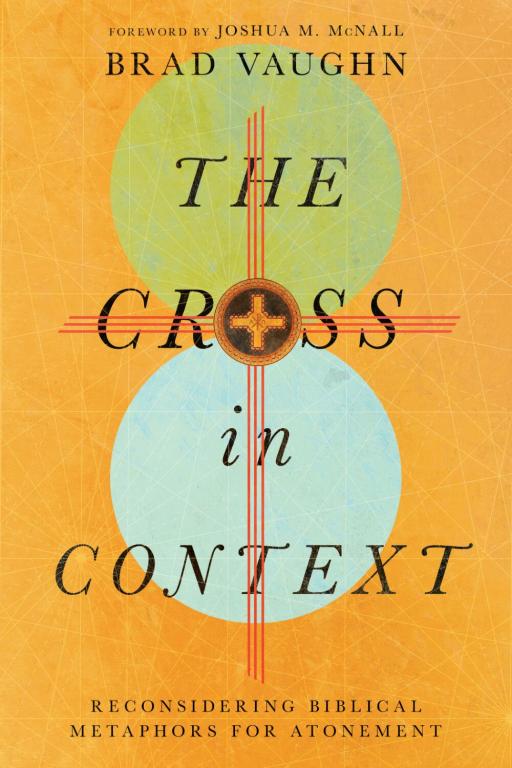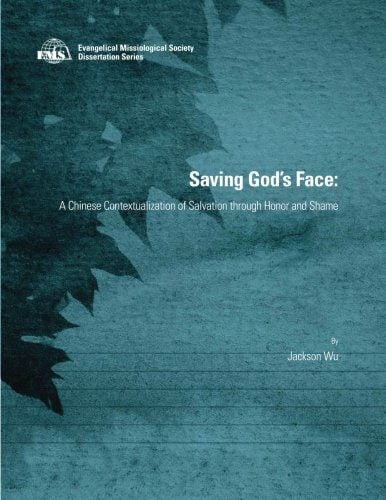
This past week, the Missions Podcast interviewed Aubrey Sequeira about honor, shame, and penal substitutionary atonement. You might recall that we had a debate about this topic a few years back (here and here).
On the podcast, Sequeira spent significant time critiquing me and my book The Cross in Context, where I lay out how the biblical authors discuss atonement (in contrast to contemporary theological debates about this or that theory). I can’t offer a line-for-line interaction with him, so I’ll simply offer a few initial impressions and replies, if anything, as a way of making sure that listeners hear my actual views and not the somewhat misleading version presented in the interview.
(I do provide a video below where I respond “in real time” as I watch the podcast interview.)
General Impressions
To be sure, I think Sequeira did his best to characterize my position as he understood it. His tone is respectful, although his tone during his Radius talk was less so IMO.) Yet, due to his being on a podcast, I recognize he’s limited in how thorough he can be when articulating my view. Whereas I thought he previously misrepresented or overstated his case in the series of blog exchanges, I think he is more careful and clearer in this interview than before.
Sequeira and I’s methodical approach to the topic are different in a significant way. My book offers an exegetical argument grounded in the Old Testament; he presents a theological one, with select proof-texting from the New Testament. He argues with certain conclusions already in mind; I demonstrate how we need to understand the Bible’s arguments on its own terms such that multiple non-contradictory theories (e.g., penal substitutionary atonement (PSA), Christus Victor, Satisfaction Theory, Ransom Theory, etc.) can all contain biblical truth.
I’ll note problems with Sequeira’s commentary by putting them into 3 categories: mistaken, misleading, and negligent. One of the most misleading ideas he posits deserves attention up front because it’s so fundamental and pervasive.
In the podcast and in the Radius talk, he repeated complains that I and others “relativize” penal substitutionary atonement. He uses the word “relativize” as if we thought biblical truth was relative. No!!
Instead, what many of us have said is that people with different backgrounds often need different entry points to grasp the biblical message. Someone who first accepts a “law-guilt message” should also hear an “honor-shame message” and a “fear-power message”. Likewise, someone who first hears an “honor-shame message” should most certainly come to understand “law-guilt message” and “fear-power message.”
Contrary to Sequeira’s suggestion, I and others absolutely reject any “either-or” proposal when it comes to picking metaphors. Images that are legal, honor, payment, cultic, purity, etc. are all part of the biblical tapestry of truth.
Sequeira’s gross misrepresentation of my work (and that of others) is not responsible nor does it show charity given that I have labored extensively in numerous places to establish these exact points.
(BTW, I have previously explained why there is no necessary or inherent relationship between the concepts of honor and shame and PSA.)
How is Sequeira Mistaken?
While I can’t offer a detailed line-for-line commentary on his interview, I want to correct at least a couple of things that are flatly mistaken. He says,
“He [Brad Vaughn] says he affirms penal substitution, but he denies that atonement has anything to do with punishment, so he makes this redefinition to say Christ paid our penalty, but he didn’t take our punishment….”
“I find a lot of this in his book is you know creative revisionist exegesis of some of the texts uh some of his revisionist exegesis is really a rehash of old liberal arguments that want to do away with punitive justice and God’s wrath. So he will talk about propitiation as being entreating God, like an entreaty, so it’s not something that involves absorbing wrath.”
There is no other way to say it: Sequeira simply makes a false statement. Here are a few quotes from my book to prove my case:
“In summary, we have traced the biblical logic. First, we see that making compensation or restitution is a way of effecting atonement. Second, we note that atonement appeases God’s wrath, removing punishment that would otherwise result. Thus, we find that such reparation payments were a means for appeasing God’s anger.” (p 143)
“What about God’s wrath? God loves people and therefore is angered by sin (John 3:36; Romans 1:18). All sinners deserve punishment. However, Christ lovingly saves us from the wrath of God. The day will come when God fully inflicts his wrath on those who dishonor him yet never repent (Matthew 3:7; Romans 2:5; Ephesians 5:6; Revelation 14:10; 19:15).
The New Testament generally describes God’s wrath as being in the future. As 1 Thessalonians 1:10 explains, it is “Jesus who delivers us from the wrath to come.” God is glorified in showing wrath against his enemies. When God judges evil, he vindicates his name. Because God is righteous, he sets the world right. To make a righteous world, the Creator God must cleanse the world of rebellion. In short, Christ’s death appeases God’s wrath. Through his atoning work, we can gain God’s favor.” (p. 183-84)
Not only are his claims about me untrue; he dismisses my arguments as “old liberal arguments.” That’s mere virtue signaling to his community, yet it’s unkind and false because no “old liberals” put together the detailed exegesis you’ll find in The Cross in Context.
Any genuine Bible-loving scholar should welcome my exegetical presentation because at least then we can debate specific texts. This is my charge to all believers: when someone puts forth an exegetical argument, engage them at the level of texts, not first and foremost at the level of theology or philosophy.
Sequeira Makes Misleading Comments
-
Reader Response?
Let’s observe several misleading comments. Sequeira says,
What I think that they miss here is that their entire hermeneutic itself is an act of theological colonialism. they’ve unwittingly kind of done a kind of colonialism themselves because the hermeneutic that I’m seeing these guys use is distinctively Western and postmodern, where you’re affirming a kind of reader response (let’s read it in light of these cultural perspectives bring these together)
Let me be as clear as possible. I absolutely reject “reader response” interpretations as irresponsible and disingenuous efforts to read Scripture. Sequeira is, in fact, negligent to assert this because I have shown extensively what I mean when I say that we all have cultural lenses. It’s impossible not to have a cultural lens. (To deny this is naive and lacks humility.)
However, our cultural lens does not determine the Bible’s meaning. The Bible determines its meaning. Still, we have to recognize that our backgrounds and social location will make it easier for some people to understand Scripture and harder for others. That’s not profound rocket science. That’s true for anyone who studies anything.
-
New Perspective
Sequeira again virtue signals yet without elaborating on what is a very complex topic. He says,
And then insofar as I mean both Georges and Brad Vaughn are very clear proponents of the New Perspective on Paul. It’s a clear affirmation of these ideas.
He uses the term “New Perspective on Paul” (NPP) as if it were a definite thing. There is no single concept called the “New Perspective on Paul.” Scholars from all stripes acknowledge that we have gained much insight from the broad movement vaguely known as the NPP. Even his mentor, Tom Schreiner, has expressed great appreciation for aspects of the NPP on several occasions.
In effect, it’s a red herring and (among his audience) an ad hominem argument.
-
Mixing Metaphors
Alex and Aubrey talk about how I think theologians misinterpret the atonement because they often mix metaphors. They say,
Alex: …which by the way is confusing because where do you get shame without guilt. that’s to separate those things. it doesn’t seem to me to make a lot of sense but continue…
Aubrey: So my issue with that is that when you look at the logic of the biblical authors, they see those as connected and they see the judicial categories as fundamental so you know one can say all he wants about mixing metaphors and all of this, but we could go through the logic of Romans 3. The Apostle Paul loved mixed metaphors.
However, Sequeira misrepresents my meaning. I obviously know that Paul mixes metaphors. That’s not the point. My concern in the book is that theologians illegitimately mix them in ways that are contrary to the Bible’s own logic.
Where is Aubrey negligent?
Scholarship, at its best, creates “steel men” rather than “strawmen” arguments. A “steelman” argument presents the opposing view in its strongest form and only then attempts to rebut it. We don’t find that sort of interaction in the podcast or the Radius talk. Sequeira says,
Aubrey: [Brad Vaughn] not only relativizes penal substitution, arguing that it’s just one theory but also, I would say, completely redefines it.
…it’s almost disingenuous to say that you affirm the doctrine when you have redefined it in such a way that it does not conform to any of the classic articulations of penal substitution by theologians and scholars around the world. You think of J. I. Packer’s classic article on penal substitution– the logic of penal substitution— and what did the cross achieve. That’s Packer’s article and he talks about penal substitution in terms of the punitive justice of God.”
Alex: Oh, you’re going back to Packer, I mean, you can go back to Anselm.
What’s negligent here? First of all, I explain why I affirm penal substitution but not its logic in Appendix B, where I rebut a common premise among popular expressions of penal substitutionary atonement; namely, “Atonement implies punishment.”
In The Cross in Context, I show unambiguously examples of where atonement was made in the Bible yet no punishment was inflicted. Sequeira does not acknowledge that context nor engage in the actual argument made there.
Furthermore, he seems unaware that some versions of PSA, like that espoused by John Stott, affirm PSA while rejecting the claim that Christ is “the object of God’s punishment.”[1] Likewise, I. Howard Marshall, while arguing for PSA, writes,
“It is not a case of God punishing Christ but of God in Christ taking on himself the sin and its penalty. Indeed, at some point the challenge needs to be issued: where are these evangelicals who say that God punished Christ? Name them!”[2]
So, to speak as if all PSA proponents formulate the doctrine in precisely the same way is, I can only suppose, simply Sequeira’s lack of familiarity with the scholarship.
Don’t Accuse Without Doing Your Homework
In some places, Sequeira simply doesn’t do his homework to understand what I’ve actually said in my published works. Here’s an excerpt from the podcast:
Aubrey: The other thing Vaughn says is that Christ pays the price by dying, to pay our honor debt before God, in order to honor God through his death, his death is… the death of Christ pays our debt of honor. And it satisfies God’s honor so that God is honored. Christ shows his honor to God by dying. Here’s the question, “Well, why does he have to die?”
Alex: Right
Aubrey: Why couldn’t Jesus have just lived a perfect life in perfectly honoring his father all the way through and then ascend into heaven? Why death?
Alex: You’re just saying the same thing as penal substitution at that point with different words because the honor debt is a debt of justice because justice demands that God be honored and he receives honor when his wrath is poured out against sin
Aubrey: Yes
Alex: That’s what honors his justice.
Aubrey: So if you think about how our cultures think about it honor and shame is primarily horizontal, right, abiding by the community’s norms and showing loyalty and keeping your reputation and keeping your face. well in the Bible, honor and shame is not just tied to the horizontal. it is tied to that which is vertical. It’s God. These categories are God-centered. And honor and shame in the scripture is tied to obedience or disobedience to God’s law and to his framework of righteousness.
There’s a funny irony in this exchange: Much of this represents the precise argument I gave in Saving God’s Face! However, Aubrey presents it as though he were correcting me. He’s not read my previous work, where I labor again and again to emphasize the divine (vertical) orientation of true honor and shame.
One example is the article published in Themelios (TGC’s journal) called “Have Theologians No Sense of Shame? How the Bible Reconciles Objective and Subjective Shame?”
Even in The Cross in Context, I give significant space to answering the question, “Why does he have to die?” yet he remains silent as if I conveniently ignore the question.
Similarly, he states, “[Brad] will talk about propitiation as being entreating God, like an entreaty, so it’s not something that involves absorbing wrath.” First of all, the word-family in question never means “absorb” though it can include appease. Aside from that point, Sequeira is negligent or disingenuous because I repeatedly include appeasing wrath as a part of what it means to “entreat” God’s favor.
Here is an excerpt from The Cross in Context:
In the following passages, atone indicates “entreat” or “seek favor.” The contexts do not necessarily imply wrath. To “entreat the Lord” could entail appeasing God’s wrath, but not necessarily. Nor do they clearly speak about punishment. In short, appeasing God’s wrath implies seeking his favor; however, seeking God’s favor does not necessarily imply appeasing his wrath.
So, Sequeira forges a false dichotomy between entreating and appeasing that I never make. Yet, he falsely asserts the accusation.
Mistaken, Misleading, or Negligent?
After Sequeira rightly explains that so-called “honor-shame cultures” are concerned with their reputations and maintaining social approval, Aubrey and Alex have this back-and-forth:
Aubrey: [Adam and Eve] dishonor God by breaking God’s command, and then right after their fall, they invent an honor and shame religion. Intuitively they cover themselves with fig leaves, covering their shame but not dealing with their guilt. And if honor and shame was the root, if shame was the root issue, then the figments would suffice. Why do we need them to… Why do we need an animal slain? And Adam and Eve to be covered in these bloody garments of skin? It’s because God has spelled out the punishment for disobedience to his commands….
Alex: “… If missionaries aren’t addressing that deepest level, if they’re only addressing the superficial community standards of honor and shame, you’re saying they’re actually missing the core of the gospel.”
Aubrey: That’s right and I do think we are undermining the heart of the gospel message. And also, we are accommodating ourselves to the culture. You’re beginning to operate in cultural categories of honor and shame instead of biblical categories in the biblical categories you cannot unhitch honor and shame from guilt and righteousness.
A few problems plague this exchange. First, he contrasts psychological shame with objective guilt, thus comparing apples and oranges (a mistake he could have avoided if he’d done his due diligence and read my prior work).
Second, neither I nor Jayson Georges (whom Sequeira also criticizes) ever says that psychological shame was a root issue against objective guilt. Rather, we argue that dishonoring God is our fundamental problem. The root of sin is our shameful disregard for God’s glory. It’s only in this sense that it’s permission to say that honor and shame are “root” issues.
Third, the flow of conversation leads Alex to remark, “if they’re only addressing the superficial community standards of honor and shame, you’re saying they’re actually missing the core of the gospel.” Sequeira responds, “That’s right.”
What’s the problem? Never have we said that our goal was merely to address “superficial community standards of honor and shame.” That would be ridiculous. People need the gospel, but it is “superficial community standards of honor and shame” that blinds them to the truth.
So why does Sequeira seem to suggest that I think otherwise?
Because Sequeira has not spent sufficient time to understand my writing and how various metaphors work, he accuses me of affirming honor and shame at the expense of law and guilt. Nothing could be further from the truth. Law and guilt are indispensable parts of biblical theology.
[1] John Stott, The Cross of Christ (Downers Grove, IL: IVP Academic, 2012), 151.
[2] Tidball, Derek; Hilborn, David; Thacker, Justin. The Atonement Debate: Papers from the London Symposium on the Theology of Atonement. Zondervan, p. 63.













